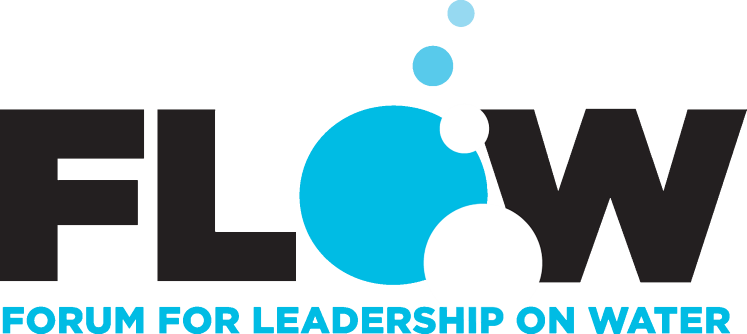Fixing Canada’s Broken Freshwater Management Regime
Oliver M Brandes, Richard Farthing-Nichol | July, 2021
Originally posted in The Hill Times on July 5, 2021.
Floods, droughts, fire, water unfit to drink – these are all increasingly common occurrences across Canada as stressed water supplies are subject to the extremes of climate change. The changing of the seasons is increasingly defined by water crises; in a country this vast, these crises manifest very differently depending on where you are.
This spring, towns in the Northwest Territories were evacuated in the face of rising flood waters, while extreme drought conditions on the prairies sparked wildfires and forced municipalities to impose water restrictions. In B.C., communities in the interior faced the cruel irony of simultaneously bailing flood waters from their basements while preparing for looming drought. Wildlife, communities, and local economies are all suffering as these intensifying water extremes are becoming the norm, a phenomenon that will only intensify as the climate continues to change.
The emergency alarms are ringing and a response that matches the urgency of the moment is needed. This response must be proactive and sustainable, not simply a series of stopgap responses to imminent or ongoing crises. One promising development is the Canada Water Agency, a new federal water institution that was first announced by our current federal government during the2019 election campaign. The Agency is a good first step, and represents a proactive and sustainable approach. But there is no urgency – nearly two years after the 2019 election, it still does not exist in any form. And in the recent federal budget, the government signalled that there would be a two-year process before the Agency is even established.
There is no good reason for this lengthy timeline. To be sure, Water management in Canada is notoriously tricky business, with federal, provincial, Indigenous, and municipal governments all playing important roles. In the face of this complexity, it is tempting for the federal government to drag their feet on the Canada Water Agency right into the next election. That is the easy approach. But what is needed is leadership: a willingness to wade through the complexity, get the Agency established, and build its capacity over time.
Two more years of webinars, discussion papers, and public consultations are not needed to deliver on the 2019 commitment and establish the Canada Water Agency. The key is to get started, not to create something perfect right out of the gate – there is a real risk that the Agency will not happen at all if perfection is a prerequisite. Once established, there are three critical and widely recognized priorities a new Canada Water Agency could begin working on immediately to start fixing Canada’s broken freshwater management regime.
First, a new Agency needs to prioritize getting the federal house in order. Freshwater responsibilities are currently split between over20 federal departments and agencies, which inevitably results in fragmentation. The Canada Water Agency must be the central coordinating body that brings these pieces together. It can amalgamate some of the federal government’s major water functions, such as water science and monitoring, while acting as a bridge and central repository across federal departments and with other levels of government.
Second, a new Canada Water Agency can make an immediate impact by converting existing data into useable, shareable information that will help us predict and respond to water issues in a rapidly changing climate. An absence of data is not the main challenge – various types of water quality and quantity data are collected by governments, academic institutions, and nongovernmental organizations across the country. But too often the data collected is not converted into useable information. To provide useful and timely information to decisionmakers, these data need to be brought together in a comprehensive and accessible way. One pressing data need that a new Canada Water Agency could address is Canada’s woefully inadequate flood and drought forecasting systems. Better forecasting systems are desperately needed by a wide range of parties – provincial governments, municipalities, farmers, insurance providers, and others – to build resilience to increasingly frequent and severe floods and droughts.
Third, the Canada Water Agency offers an opportunity to take meaningful steps towards reconciliation by fulfilling the Crown’s commitment to government-to-government relationships with Indigenous peoples. This should begin with co-developing the Agency’s mandate with Indigenous peoples in a way that is consistent with the government’s new United Nations Declaration on the Rights of Indigenous Peoples Act. It should also mean a greater openness to exploring new water governance models, including working towards watershed co-governance agreements with Indigenous nations who desire greater control over their waters. These changes will take time, but the key is to start now by demonstrating a genuine willingness to break from the status quo and work with Indigenous peoples in ways that meaningfully recognize their status as self-determining nations with inherent rights to decision-making on their territories.
The Canada Water Agency will certainly not solve all of Canada’s water woes. It is, however, a step in the right direction, and could be a catalyst to achieving the water law, policy, and governance reform that is needed to bring Canada’s freshwater management regime into the 21st century. There will always be reasons to delay its creation, but the case for urgency is immeasurably greater and is evidenced all around us by our increasingly stressed and threatened water supplies. If climate change is a shark, then water is its teeth – failing to act quickly and decisively now will further imperil our collective prosperity and threaten the water security of future generations of Canadians.
Oliver M. Brandes is the associate director at the University of Victoria’s Centre for Global Studies and co-director of the POLIS Project on Ecological Governance. He is also a founding member and chair of the Forum for Leadership on Water.
Richard Farthing-Nichol is a project manager at the Centre for Indigenous Environmental Resources.

